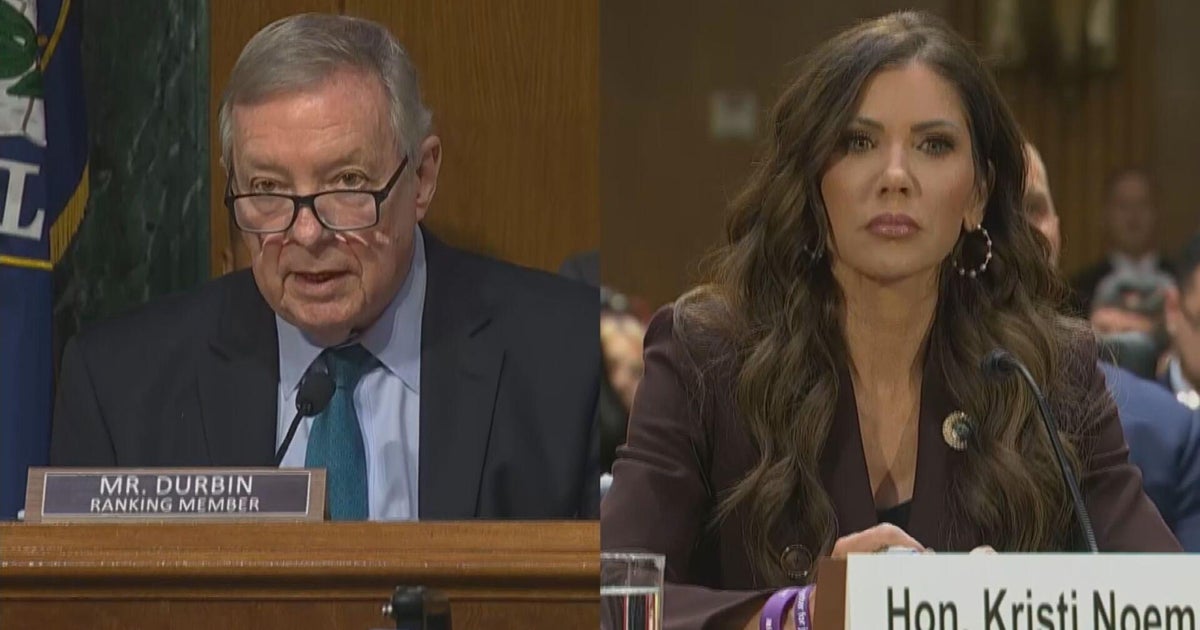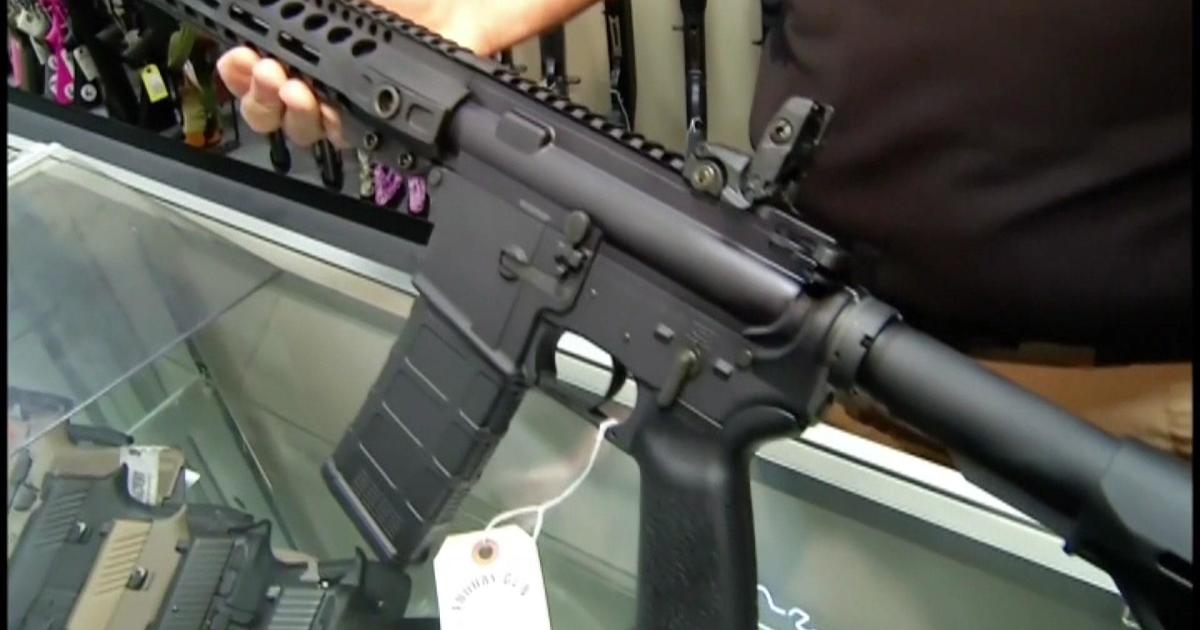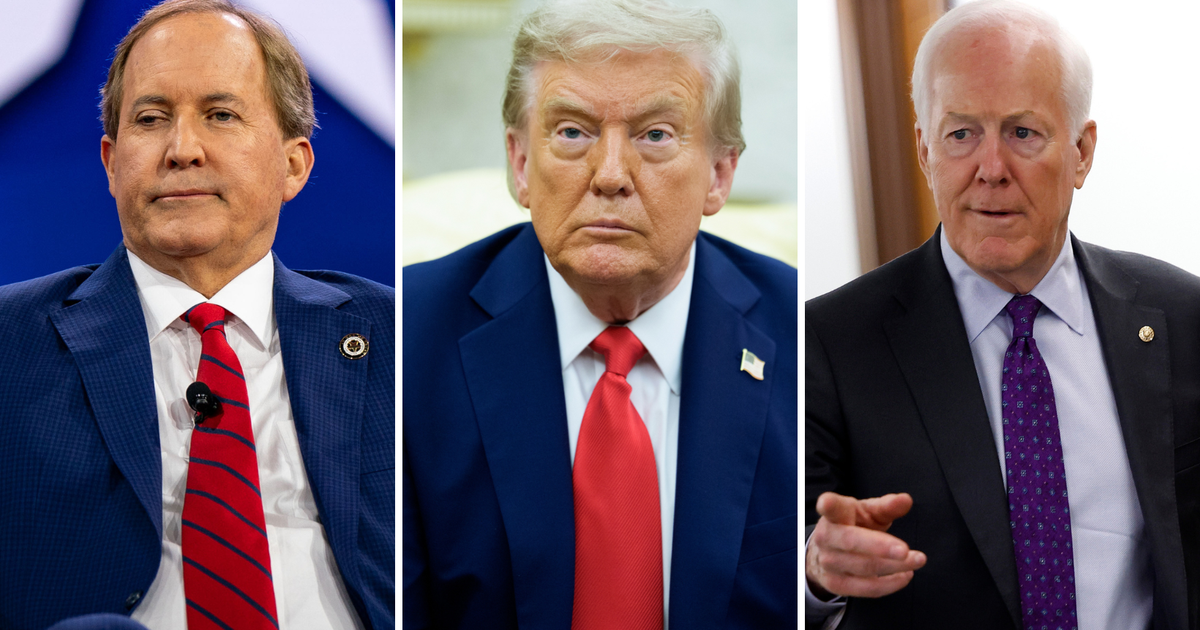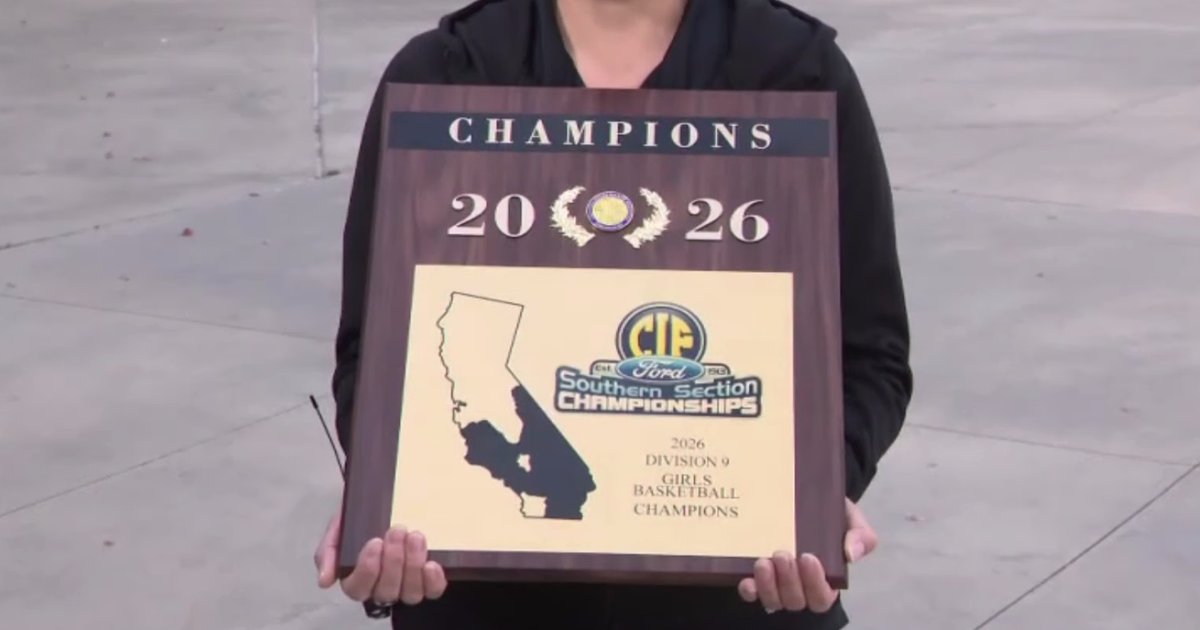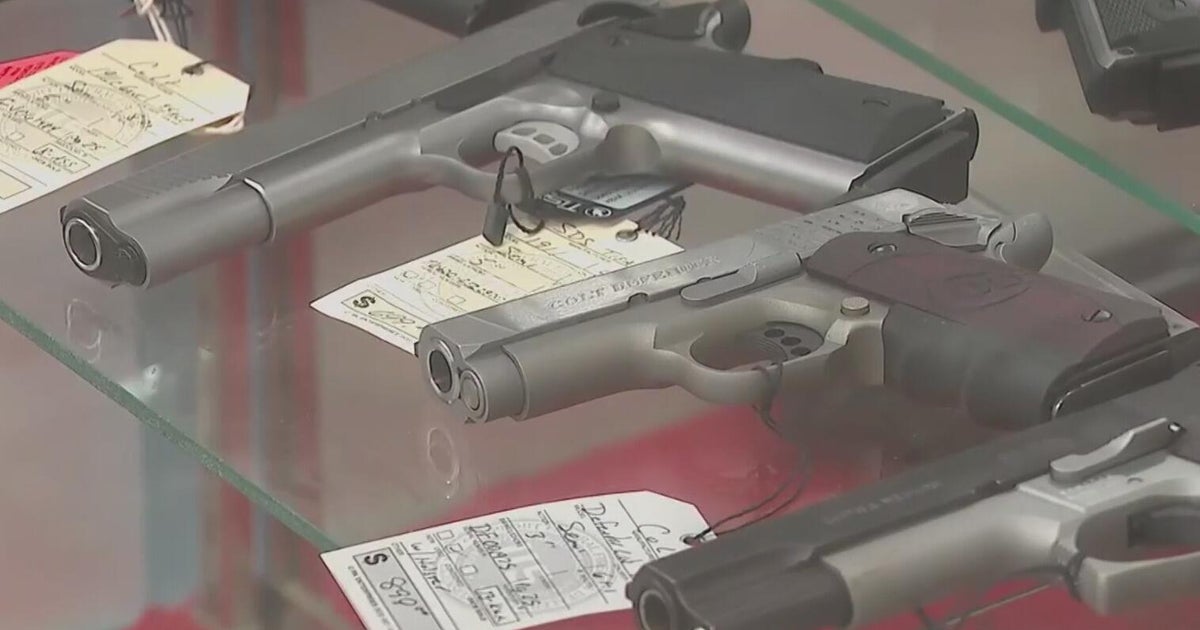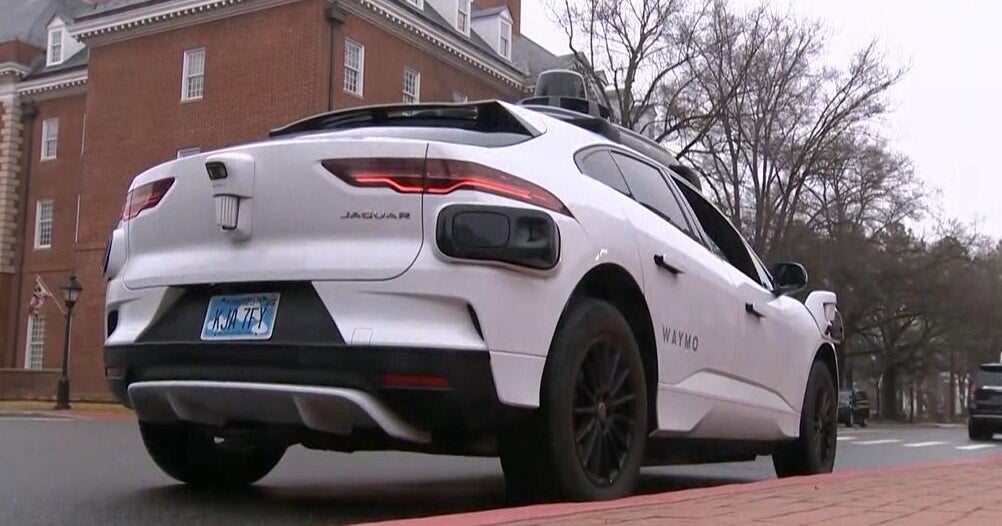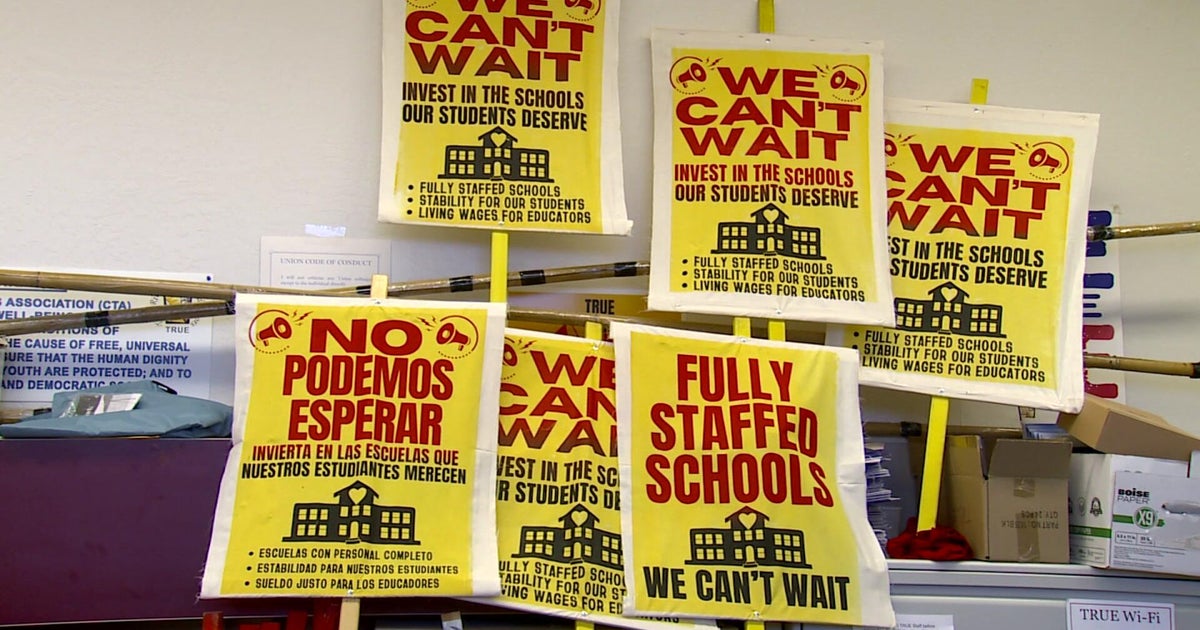Feinstein's Weapons Ban Passes Committee After Heated Debate
WASHINGTON D.C. (CBS/AP) - Democrats pushed an assault weapons ban through a Senate committee on Thursday and toward its likely doom on the Senate floor, after an emotion-laden debate that underscored the deep feelings the issue stokes.
Exactly three months after 26 children and educators were gunned down in Newtown, Conn., the Senate Judiciary Committee approved the measure on a party-line 10-8 vote. The bill would also bar ammunition magazines carrying more than 10 rounds.
Thursday's vote marked the fourth gun control measure the committee has approved in a week and shifted the spotlight to the full Senate. Majority Leader Harry Reid, D-Nev., said he will decide soon how to bring the measures to the chamber, where debate is expected next month.
"Americans are looking to us for solutions and for action," said Senate Judiciary Committee Chairman Patrick Leahy, D-Vt. He said that despite gun-rights advocates' claims, the Second Amendment's right to bear arms is not at risk, but "lives are at risk" unless lawmakers can figure out how to keep firearms away from dangerous people.
The other bills would require federal background checks to more would-be gun buyers, make it easier for authorities to prosecute illegal gun traffickers and boost school safety aid.
In a written statement, President Barack Obama thanked senators "for taking another step forward in our common effort to help reduce gun violence" and said Congress should vote on all the proposals. He said assault weapons "are designed for the battlefield, and they have no place on our streets, in our schools, or threatening our law enforcement officers."
Barring assault weapons was part of Obama's plan for reducing gun violence. But banning the high-powered weapons has encountered strong opposition from congressional Republicans and elicited little enthusiasm among moderate Democratic senators up for re-election next year in GOP-leaning states in the West and South.
The measure's sponsor, Sen. Dianne Feinstein, D-Calif., and her supporters say the ban would help eliminate the type of firearms and magazines that have been used with deadly effect at Newtown and several other recent mass shootings. Opponents say barring the guns would violate the right to bear arms and have little overall impact because assault weapons are involved in small percentages of gun crimes.
At one point Thursday, Feinstein responded angrily after Sen. Ted Cruz, R-Texas, asked if she would also support limiting the First Amendment's freedom of speech by denying its protection to some books.
"I'm not a sixth grader. Senator, I've been on this committee for 20 years" and studied the issue for a long time, she told Cruz. She later added: "It's fine you want to lecture me on the Constitution. I appreciate it. Just know I've been here a long time."
Cruz, an outspoken conservative freshman, answered, "Nobody doubts her sincerity and her passion and yet at the same time, I'd note she chose not to answer the question."
"The answer is obvious—no," Feinstein said later.
She and other Democrats also argued that there are limits on many constitutional rights. Leahy said the state Board of Education in Cruz's home state "has told people what books they should or shouldn't read"—a reference to that conservative-led board that controls the state's school curriculum standards.
Cruz said lawmakers should make decisions about gun legislation using "facts and data and by the Constitution, not by passion."
Before the ban was approved, Democrats defeated Republican amendments seeking to exempt groups including sexual abuse victims and people who live near the Southwest border.
Sen. John Cornyn, R-Texas, said Feinstein's measure wouldn't stop criminals from obtaining assault weapons and complained, "We're going to give the American citizens a pea-shooter to defend themselves with."
Feinstein said there was no evidence that people can't defend themselves just as well with a handgun.
At one point, Leahy, an avid gun owner, said some of the debate reminded him of movies depicting "zombie takeovers," adding, "I've always been perfectly satisfied with my .45 that I have at home."
Feinstein's bill would ban semi-automatic weapons—guns that fire one round and automatically reload—that can take a detachable magazine and have at least one military feature like a pistol grip.
It specifically bans 157 named weapons. In an effort to avoid antagonizing those who use them for sports, the measure allows 2,258 rifles and shotguns that are frequently used by hunters.
It also exempts any weapons that are lawfully owned whenever the bill is enacted.
Many expect the assault weapons ban won't be included in the basic bill the Senate debates next month, but will be offered as an amendment. That would mean it would likely need 60 votes to prevail in the 100-member chamber—a difficult margin for Feinstein since there are only 53 Democratic senators plus two independents who usually side with them.
"The vote is uphill. I truly understand it," she said.
Separating the ban from more popular measures would also make it easier for red-state Democrats to vote against the ban but still leave them available to back the rest of the legislation. Several senators said they thought the ban on high-capacity magazines could pass.
The House's Republican leaders have said they'll wait for the Senate to act before moving on legislation. They've not expressed support for an assault weapons ban.
They have discussed improving how states report data on people with serious mental health and drug abuse problems to the federal background check system. Both parties see that as a major flaw that needs to be fixed.
(Copyright 2013 by CBS San Francisco. All Rights Reserved. This material may not be published, broadcast, rewritten, or redistributed.)
